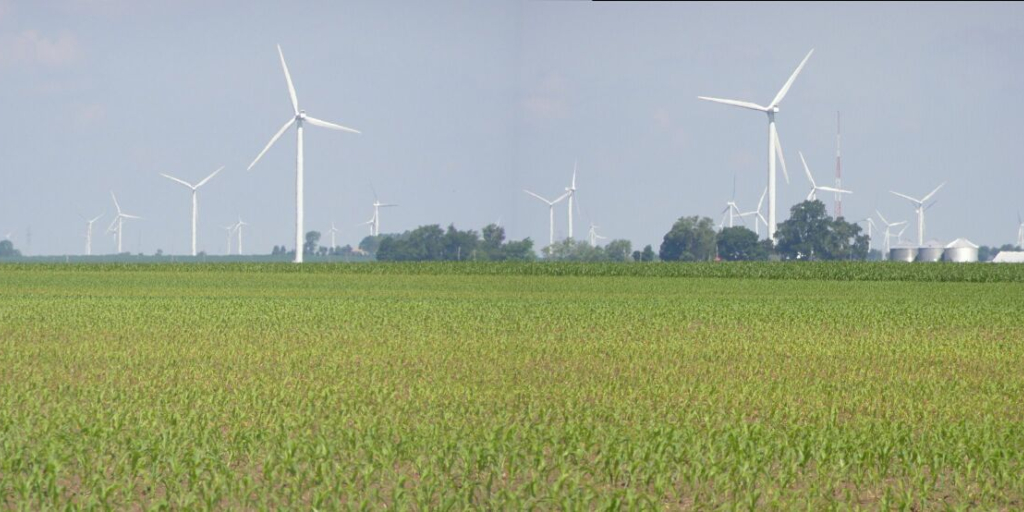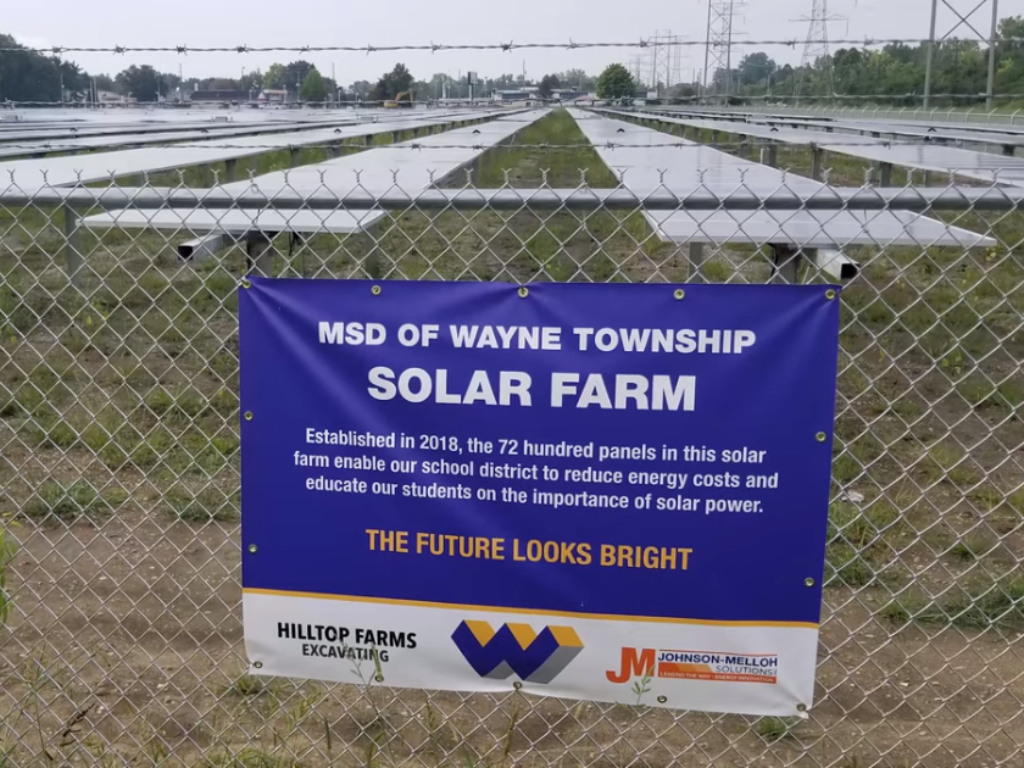For decades the Midwest has been dependent on coal plants, which have been rapidly closing across the region. The transition to renewable energy is underway, as many new renewable technologies are or will soon be economically competitive with traditional energy sources. With its industrial capacity and high potential for wind energy and solar generation, the Midwest is well-positioned to achieve a clean energy future.
Renewable Energy in Your Community
By 2030, the clean energy economy could create 85,000+ new jobs and $42.8 billion in lower electricity and gas bills in the Midwest alone, according to the Union of Concerned Scientists. Local governments across the country are leading the transition to renewable energy by integrating solar technology into building energy use, water delivery and utilities services, on-site operations, community-wide initiatives, and more.

The benefits of renewable energy
Clean and Local Job Creation— The renewable energy industry is the fastest-growing source of electricity generation and one of the fastest-growing job sectors in the country according to the US Energy Information Administration.
More Reliable and Resilient— Unlike traditional energy resources, wind and solar energy systems do not require single-site power plants. This means they are more resilient to disruption from storms and other extreme events. Renewable energy is also less variable than traditional energy, allowing for stable, long-term pricing.
Fewer GHG emissions— Transitioning from fossil fuel-sourced energy to renewables reduces greenhouse gases (GHGs), the emissions that lead to climate change. In the U.S., about a third of GHG emissions come from the electricity sector; renewable energy sources, produce little to no emissions.
The future is renewable
According to the National Renewable Energy Laboratory, the renewable technologies and flexible electric systems that are available could supply 80% of the total generation in every region of the U.S. by 2050.
Cities are leading the way—more than 130 cities have committed to 100% renewable electricity by 2035 and all other energy sectors, like gas, by 2050 according to Yale Climate Connections.
Examples of renewable energy projects
Tools and resources for renewable conversion
1. Planning— Toolkits such as the "USEPA Renewable Energy Project Development" or the American Planning Association's "Planning for Solar Energy" and "Planning for Wind Energy" can help local governments identify economic and administrative barriers in the deployment of on-site renewable energy projects. Additional planning toolkits include the "Community Power Toolkit" from the Institute for Local Self-Reliance, "Solar for Municipalities" from Solar United Neighbors, and more.
2. Financing— The Interstate Renewable Energy Council offers the "Solar Power Purchase Agreement Toolkit for Local Governments" to help streamline solar power purchase agreements and reduce solar costs. Information on energy performance contracting is available from Sander Mechanical Service.
3. Policy— The National Conference of State Legislatures created the "Solar Policy Toolkit" to provide information on solar markets by state and help assess possible policies to move local governments forward with solar.

How to support renewable energy in your community
Install Renewable Energy On-site— Adopt a clean energy commitment to move your community’s electricity sector to be renewable, affordable, and equitable. This commitment should include developing and implementing renewable energy generation on government-owned facilities.
Purchase Renewable Energy Directly From Providers— Authorizing Community Choice Aggregation allows the local government to negotiate electricity and gas supply on behalf of customers, and pursue carbon-free suppliers. Another option is to negotiate a franchise agreement with your utility that prioritizes renewable energy and creates pathways for clean energy partnerships.
Generate or Purchase Renewable Energy Certificates (RECs)— Using RECs puts a market value on the renewable energy you source for your constituents. RECs allow you to support renewable energy generation, offset carbon emissions, and promote a market-driven solution for members of the community to support renewable energy.
Support Community Renewable Energy Projects— Increase renewable generation by using bulk purchasing to help simplify the process and reduce upfront costs for homeowners through Solarize Indiana and for community solar through SolSmart.


